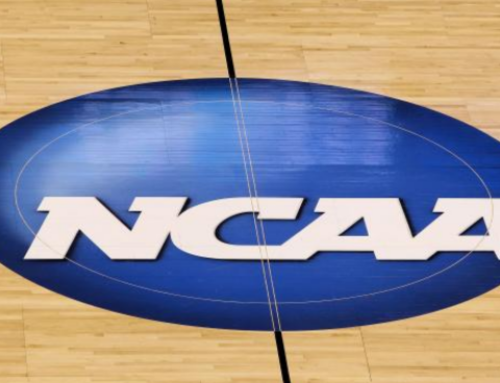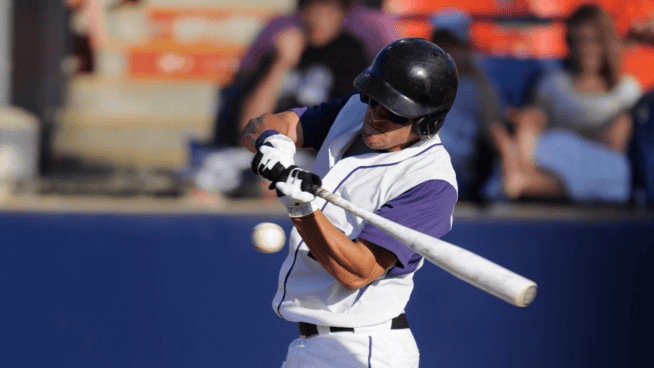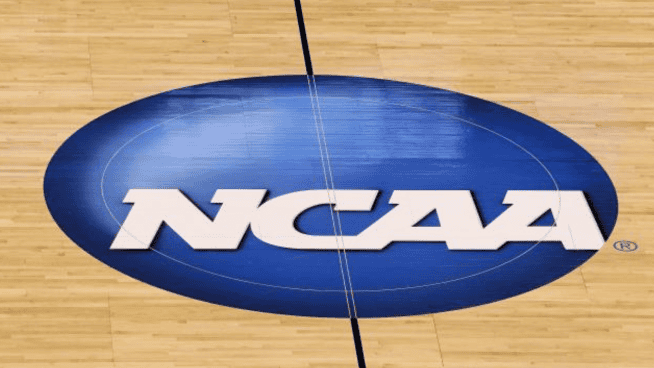Today’s quest to reach the pinnacle of any given sport is a monumental task for any talented young athlete. Competition is fierce, talent is plentiful, and opponents are getting stronger and faster. Everyone is trying to gain the edge and find marginal gains to triumphantly arrive at the promised land of professional sport.
The pathway for young talented athletes today is long, tough and littered with stumbling blocks. The High School Athletics Participation survey noted that 1,057,407 student-athletes were playing 11-player Football within the United States. Compare that to the number of players that actually compete in the NFL and you’ll get an idea of how many young stars don’t make it to the professional ranks.
Here are five things that may just help the aspiring professional athlete to make sense of their journey and understand how potential transforms into performance.
Talent Is Complex
There is no magic bullet or secret formula for reaching the top. Sporting excellence is multi-faceted, dynamic and extremely complex. An athlete can look destined for success just before an injury, new coach or change in personal circumstances rescinds all that in an instant.
Even the empirical research around athletic development acknowledges this complexity. In the Great British Medallist Project (2016), Rees et al captures this. The authors note that with so much information and opinion, so many models and frameworks, so much popular wisdom and controversy, the task of generating a clear understanding of the development of the world’s best sporting potential was challenging.
In other words, understanding how athletes reach the top of their game cannot be over simplified. Coaching, training, psychology, strength and conditioning, nutrition and recovery cannot stand alone as individual elements. A holistic approach is required to ensure this complexity is embraced and potential can be truly realized.
Talent Isn’t About How Good You Are Now
Current performance is not an effective indicator of future ability. We’ve all talked to an “almost guy,” the one who adamantly squawks he would have played pro ball if it wasn’t for some obscure reason. There’s every chance he was a top player in high school, but for whatever reason he didn’t fulfill his potential. Its acknowledged that child prodigies such as Rory McIlroy and the Williams sisters have gone on to star in their respective sports. However, there are thousands more supposed stars of the future who didn’t make it.
Youngsters who are standouts in youth sports may just be early developers, who are bigger, stronger and faster than their peers. On the flip side you have late developers like Chicago Bulls legend Scottie Pippen, who allegedly grew 7 inches in college with performances skyrocketing as a consequence. Martindale, Collins and Abraham (2007) note the vast majority of those who become extremely successful adults did not start as equally gifted young performers. The realization of your potential is about how great you can be, not how good you are now.
The Road to Success Isn’t a Straight Line
Success does not follow straight lines. Collins, McNamara and McCarthy (2016) recognize that many athletes’ journeys are on ‘Rocky Roads’ not smooth highways. They also suggest that the athlete’s environment should reflect this, by advocating the importance of challenge in the development of high potential young performers. In their words: “Talent Needs Trauma.”
Young stars will experience the ups and downs along the rocky road. Dealing with smaller issues and challenges in their formative years will help them cope much better when major life stresses occur. Athletes who can bounce back from disappointment more effectively will be able to bounce back more effectively when faced with disaster.
Your Support Network is Crucial
The old phrase, “you become who you spend time with” often rings true in athletics. Get involved in a negative circle of friends and acquaintances, expect negative consequences. Surrounding yourself with the correct people is essential for any young athlete who wants to get that first contract. The advice and guidance athletes receive at this point is crucial to their development and life direction. Having a close, supportive network will help them make the correct decisions to benefit their future.
Athletes like Steph Curry have surrounded themselves with family and close friends who have supported his meteoric rise to basketball’s elite. Curry has people who genuinely care about his interests and him as a person. When times get tough you need to draw on the support of those closest to you. Having an excellent support network will help you share your problems and find solutions to your challenges.
Adopt a Growth Mindset
Possessing a growth mindset is a key facet in developing sporting expertise. Many coaches and athletes will have identified with Dr. Carol Dweck’s study on mindset and how a growth mindset should allow athletes to embrace learning, welcome challenges, mistakes and feedback, and to understand the role of effort in creating excellence.
For the young athlete, a useful exercise is sitting down and trying to identify if you exhibit more growth or fixed mindset traits. Athletes can begin to develop strategies to improve mental toughness and cope with disappointment by redefining failure and recognizing the role effort plays in achieving sporting success. As MJ once said, “I’ve failed over and over again. And that’s why I succeed.”
References:
Collins D.J., McNamara A., and McCarthy N. (2016). Putting the Bumps in the Rocky Road: Optimizing the Pathway to Excellence. Frontiers in Psychology.
Dweck, C. S. (2006). Mindset: The New Psychology of Success. New York: Random House.
Martindale R.J., Collins D. and Abraham A. (2007) Effective Talent Development: The Elite Coach Perspective in UK Sport. Journal of Applied Sport Psychology
Rees T., Hardy L., Güllich A., Abernethy B., Côté J., Woodman T., et al. (2016). The great British medalists project: a review of current knowledge on the development of the world’s best sporting talent. Sports Med.
READ MORE:
- Boost Self-Confidence With 5 Sports Psychology Tips
- Does Hard Work Really Beat Talent?
- Kevin Durant’s Family Support
RECOMMENDED FOR YOU
Today’s quest to reach the pinnacle of any given sport is a monumental task for any talented young athlete. Competition is fierce, talent is plentiful, and opponents are getting stronger and faster. Everyone is trying to gain the edge and find marginal gains to triumphantly arrive at the promised land of professional sport.
The pathway for young talented athletes today is long, tough and littered with stumbling blocks. The High School Athletics Participation survey noted that 1,057,407 student-athletes were playing 11-player Football within the United States. Compare that to the number of players that actually compete in the NFL and you’ll get an idea of how many young stars don’t make it to the professional ranks.
Here are five things that may just help the aspiring professional athlete to make sense of their journey and understand how potential transforms into performance.
Talent Is Complex
There is no magic bullet or secret formula for reaching the top. Sporting excellence is multi-faceted, dynamic and extremely complex. An athlete can look destined for success just before an injury, new coach or change in personal circumstances rescinds all that in an instant.
Even the empirical research around athletic development acknowledges this complexity. In the Great British Medallist Project (2016), Rees et al captures this. The authors note that with so much information and opinion, so many models and frameworks, so much popular wisdom and controversy, the task of generating a clear understanding of the development of the world’s best sporting potential was challenging.
In other words, understanding how athletes reach the top of their game cannot be over simplified. Coaching, training, psychology, strength and conditioning, nutrition and recovery cannot stand alone as individual elements. A holistic approach is required to ensure this complexity is embraced and potential can be truly realized.
Talent Isn’t About How Good You Are Now
Current performance is not an effective indicator of future ability. We’ve all talked to an “almost guy,” the one who adamantly squawks he would have played pro ball if it wasn’t for some obscure reason. There’s every chance he was a top player in high school, but for whatever reason he didn’t fulfill his potential. Its acknowledged that child prodigies such as Rory McIlroy and the Williams sisters have gone on to star in their respective sports. However, there are thousands more supposed stars of the future who didn’t make it.
Youngsters who are standouts in youth sports may just be early developers, who are bigger, stronger and faster than their peers. On the flip side you have late developers like Chicago Bulls legend Scottie Pippen, who allegedly grew 7 inches in college with performances skyrocketing as a consequence. Martindale, Collins and Abraham (2007) note the vast majority of those who become extremely successful adults did not start as equally gifted young performers. The realization of your potential is about how great you can be, not how good you are now.
The Road to Success Isn’t a Straight Line
Success does not follow straight lines. Collins, McNamara and McCarthy (2016) recognize that many athletes’ journeys are on ‘Rocky Roads’ not smooth highways. They also suggest that the athlete’s environment should reflect this, by advocating the importance of challenge in the development of high potential young performers. In their words: “Talent Needs Trauma.”
Young stars will experience the ups and downs along the rocky road. Dealing with smaller issues and challenges in their formative years will help them cope much better when major life stresses occur. Athletes who can bounce back from disappointment more effectively will be able to bounce back more effectively when faced with disaster.
Your Support Network is Crucial
The old phrase, “you become who you spend time with” often rings true in athletics. Get involved in a negative circle of friends and acquaintances, expect negative consequences. Surrounding yourself with the correct people is essential for any young athlete who wants to get that first contract. The advice and guidance athletes receive at this point is crucial to their development and life direction. Having a close, supportive network will help them make the correct decisions to benefit their future.
Athletes like Steph Curry have surrounded themselves with family and close friends who have supported his meteoric rise to basketball’s elite. Curry has people who genuinely care about his interests and him as a person. When times get tough you need to draw on the support of those closest to you. Having an excellent support network will help you share your problems and find solutions to your challenges.
Adopt a Growth Mindset
Possessing a growth mindset is a key facet in developing sporting expertise. Many coaches and athletes will have identified with Dr. Carol Dweck’s study on mindset and how a growth mindset should allow athletes to embrace learning, welcome challenges, mistakes and feedback, and to understand the role of effort in creating excellence.
For the young athlete, a useful exercise is sitting down and trying to identify if you exhibit more growth or fixed mindset traits. Athletes can begin to develop strategies to improve mental toughness and cope with disappointment by redefining failure and recognizing the role effort plays in achieving sporting success. As MJ once said, “I’ve failed over and over again. And that’s why I succeed.”
References:
Collins D.J., McNamara A., and McCarthy N. (2016). Putting the Bumps in the Rocky Road: Optimizing the Pathway to Excellence. Frontiers in Psychology.
Dweck, C. S. (2006). Mindset: The New Psychology of Success. New York: Random House.
Martindale R.J., Collins D. and Abraham A. (2007) Effective Talent Development: The Elite Coach Perspective in UK Sport. Journal of Applied Sport Psychology
Rees T., Hardy L., Güllich A., Abernethy B., Côté J., Woodman T., et al. (2016). The great British medalists project: a review of current knowledge on the development of the world’s best sporting talent. Sports Med.
READ MORE:
- Boost Self-Confidence With 5 Sports Psychology Tips
- Does Hard Work Really Beat Talent?
- Kevin Durant’s Family Support










